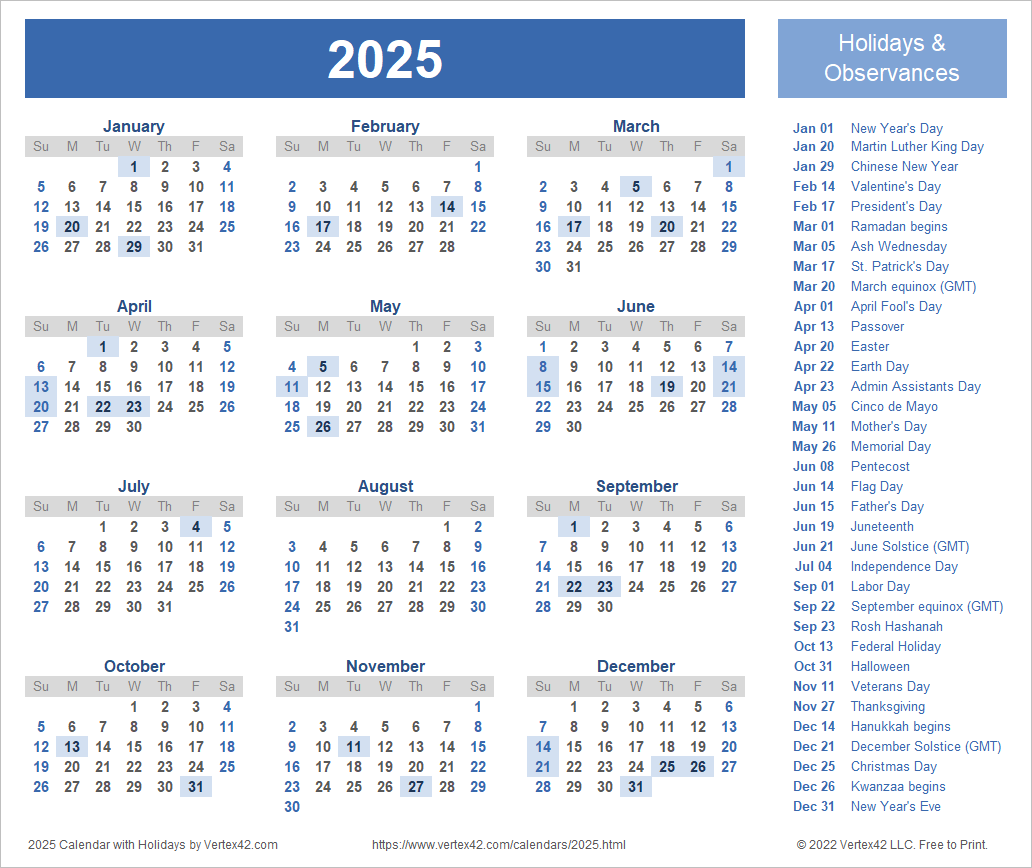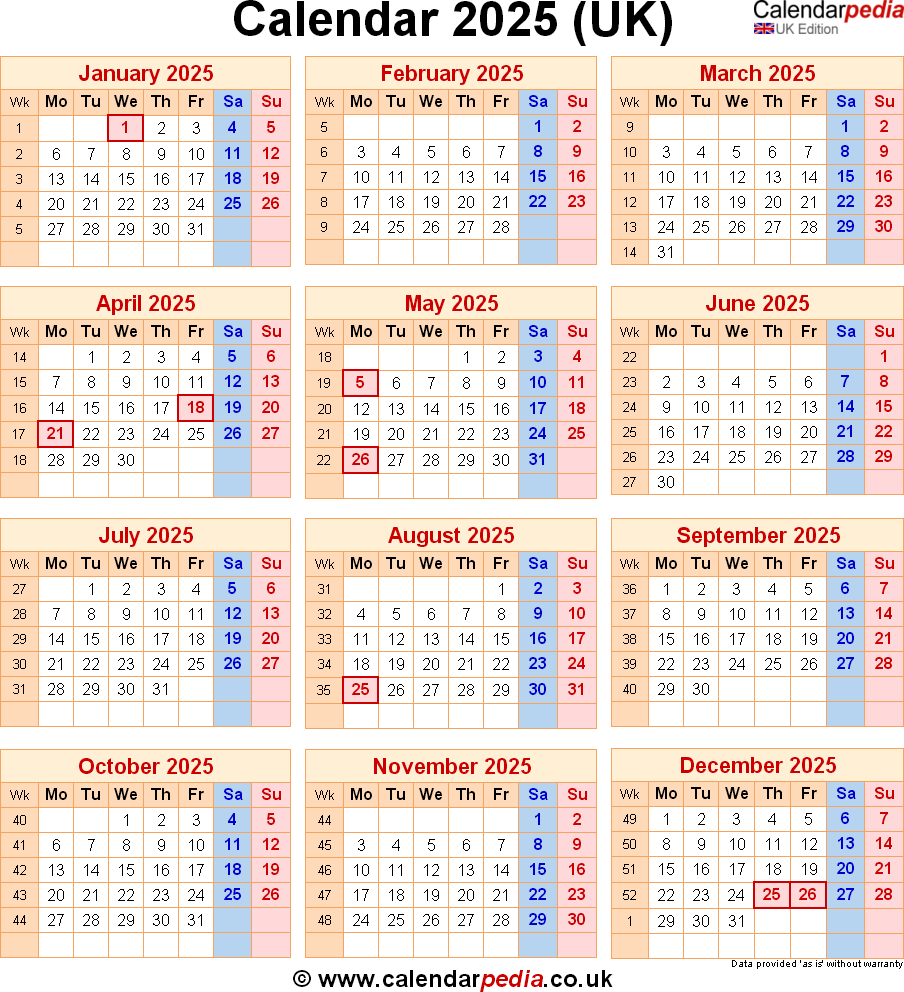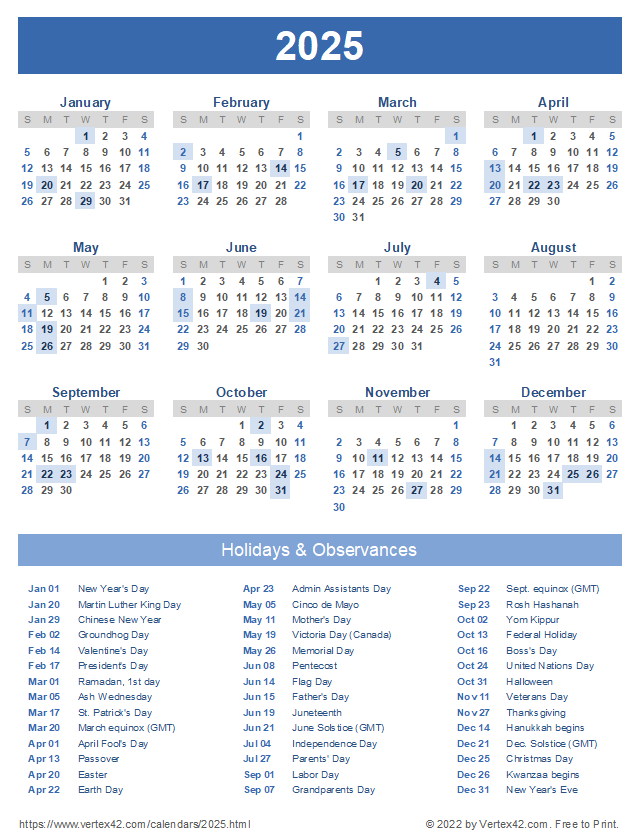2025 UK Calendar: Holidays and Observances
Related Articles: 2025 UK Calendar: Holidays and Observances
- Unit 5: Calendar 2023-2025
- 2025 Calendar With Week Numbers And Holidays
- December 2025 Calendar January 2026
- December 2025 Through May 2026 Calendar
- Editable Calendar 2025 Word: A Comprehensive Guide To Customization
Introduction
With great pleasure, we will explore the intriguing topic related to 2025 UK Calendar: Holidays and Observances. Let’s weave interesting information and offer fresh perspectives to the readers.
Table of Content
Video about 2025 UK Calendar: Holidays and Observances
2025 UK Calendar: Holidays and Observances

The United Kingdom observes a diverse range of holidays and observances throughout the year, commemorating historical events, religious festivals, and cultural traditions. These holidays provide opportunities for rest, celebration, and reflection, and they play an integral role in shaping the rhythm of British life.
January
- New Year’s Day (January 1): A public holiday marking the beginning of the new year.
- Epiphany (January 6): A Christian feast day commemorating the visit of the Magi to the infant Jesus.
February
- Saint Valentine’s Day (February 14): A romantic holiday celebrated with gifts, cards, and expressions of love.
- Shrove Tuesday (February 18): The day before Ash Wednesday, traditionally celebrated with pancakes and other indulgences.
- Ash Wednesday (February 19): The first day of Lent, a period of fasting and reflection in the Christian calendar.
March
- Saint David’s Day (March 1): A national holiday in Wales, celebrating the patron saint of the country.
- Mothering Sunday (March 16): A day to honor mothers, typically celebrated with gifts and family gatherings.
- Saint Patrick’s Day (March 17): A cultural holiday celebrating the patron saint of Ireland, often marked by parades and festivities.
April
- Maundy Thursday (April 10): The day before Good Friday, commemorating the Last Supper of Jesus Christ.
- Good Friday (April 11): A Christian holiday commemorating the crucifixion of Jesus Christ.
- Easter Sunday (April 13): The most important Christian holiday, celebrating the resurrection of Jesus Christ.
- Easter Monday (April 14): A public holiday following Easter Sunday, providing an extended weekend for rest and celebration.
May
- May Day (May 1): A traditional spring festival, often celebrated with dancing and other outdoor activities.
- Early May Bank Holiday (May 5): A public holiday to mark the start of the May Day holiday weekend.
June
- Trooping the Colour (June 14): An annual military parade celebrating the official birthday of the British monarch.
- Father’s Day (June 15): A day to honor fathers, typically celebrated with gifts and family gatherings.
July
- Royal Ascot (June 17-21): A prestigious horse racing event, attended by the British royal family.
August
- Summer Bank Holiday (August 25): A public holiday to mark the end of the summer holiday season.
September
- Labor Day (September 1): A day to honor the contributions of working people, typically marked by parades and speeches.
- Harvest Festival (September 21): A Christian festival giving thanks for the harvest, often celebrated with food and music.
October
- Halloween (October 31): A traditional festival with pagan and Christian roots, celebrated with costumes, trick-or-treating, and bonfires.
November
- Bonfire Night (November 5): A traditional festival commemorating the failed Gunpowder Plot of 1605, celebrated with bonfires and fireworks.
- Remembrance Day (November 11): A day to remember those who have died in war, marked by ceremonies and the wearing of poppies.
December
- Christmas Day (December 25): A Christian holiday celebrating the birth of Jesus Christ, marked by family gatherings, gift-giving, and special meals.
- Boxing Day (December 26): A public holiday following Christmas Day, traditionally a day for giving gifts to servants and tradespeople.
- New Year’s Eve (December 31): The last day of the year, often celebrated with parties, fireworks, and resolutions for the coming year.
Additional Observances
In addition to the official public holidays, the UK also recognizes a number of other observances and commemorations throughout the year. These include:
- Chinese New Year: Celebrated by the Chinese community in the UK, typically in late January or early February.
- Holi (March): A Hindu festival of colors, celebrated with music, dancing, and the throwing of colored powder.
- Eid al-Fitr (April/May): A Muslim festival marking the end of the fasting month of Ramadan.
- Eid al-Adha (July/August): A Muslim festival commemorating the sacrifice of Ibrahim.
- Diwali (October/November): A Hindu festival of lights, celebrated with fireworks, feasts, and prayers.
- Hanukkah (December): A Jewish festival commemorating the victory of the Maccabees over the Greeks.
Note: The dates of some religious festivals may vary slightly from year to year due to the lunar calendar.
The calendar of holidays and observances in the UK reflects the country’s rich cultural and religious diversity. These special days provide opportunities for people from all walks of life to come together, celebrate, and honor their traditions.








Closure
Thus, we hope this article has provided valuable insights into 2025 UK Calendar: Holidays and Observances. We thank you for taking the time to read this article. See you in our next article!